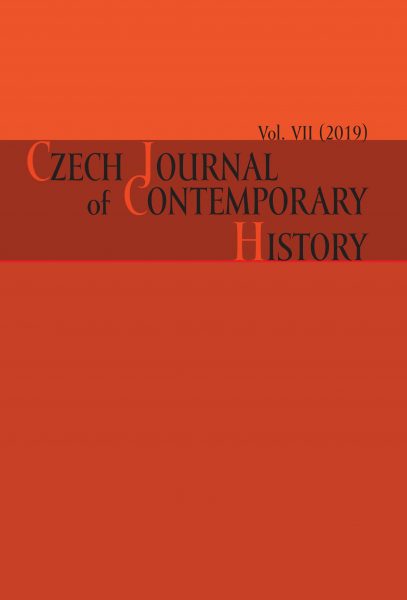When We Walk Down Wenceslas Square… A Picture of the Return of Czech Legionnaires to Their Homeland in Their Recollections and Autobiographic Novels
When We Walk Down Wenceslas Square… A Picture of the Return of Czech Legionnaires to Their Homeland in Their Recollections and Autobiographic Novels
Author(s): Dalibor VáchaSubject(s): Poetry, Military history, Political history, Recent History (1900 till today), Czech Literature, Slovak Literature, American Literature
Published by: AV ČR - Akademie věd České republiky - Ústav pro soudobé dějiny
Keywords: When We Walk Down Wenceslas Square; A Picture of the Return of Czech Legionnaires to Their Homeland; Recollections and Autobiographic Novels;
Summary/Abstract: The study stems from the author’s long-time interest in the history of the Czechoslovak foreign resistance during the Great War, particularly in Russia. As to its sources, it draws from a collection of published recollections of Czechoslovak legionnaires and their autobiographic novels and other texts of prose. The author attempts to reconstruct the picture of the return of Czechoslovak legions from Russia to their home country; due to the nature of his sources, however, his intention is not to convey an authentic experience of the return in the first days and weeks, but rather to examine the construct created by the legionnaires’ memories and novels. In this respect, he makes use of, in particular, Anglo-Saxon historical literature dealing with similar topics. The key issues include how individuals or whole social groups were coping with the reality of the newborn republic, which was rather different from the visions of the home country they had been dreaming about while away. An important factor affecting their reflections was also the required political non-affiliation of organizations of legionnaires, as well as the criticism of the situation not just among the veterans, but in the entire society. The extent of the idealization of Russia, which was a fairly frequent phenomenon among them, was directly proportional to the disillusionment after their return, and was a mirror image of their previous idealization of home while they had been in Russia. In the author’s opinion, the topic of the return of Czechoslovak legions home and their life in their home country is far from exhausted; this is why the present study should be just a springboard to further broadly conceived research.
Journal: Czech Journal of Contemporary History
- Issue Year: VII/2019
- Issue No: 7
- Page Range: 15-43
- Page Count: 29
- Language: English

